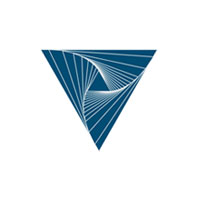Archived entry
Prof. Dr. Andreas Witt left the University of Cologne in 2019. This profile page serves as an archive and is not kept up-to-date.
Andreas Witt’s research focuses on annotation science and information modeling for language resources. An application-oriented aim of his research is to find mechanisms for the automatic extraction of information conveyed in digital texts. At a theoretical level, information modelling of text data allows researchers to make explicit their abstract analyses of the textual content.
Moreover, Andreas Witt is interested in developing methods and strategies to ensure the sustainability and the re-usability of linguistic resources. Therefore, he is involved in activities of standardization bodies: he is convener of the ISO working group, "Linguistic Annotation" (TC37/SC4/WG6) and a co-chair of the Special Interest Group "TEI for Linguists" within the Text Encoding Initiative (TEI).
Selected publications
- Henning Lobin, Roman Schneider, Andreas Witt (2018): Organisierte Kooperativität – Forschungsinfrastrukturen für die germanistische Linguistik. In: Lobin, Schneider & Witt (eds.): Digitale Infrastrukturen für die germanistische Forschung. (= Germanistische Sprachwissenschaft um 2020 6). Berlin/Boston: de Gruyter, 2018. S. 1-8.
- Andreas Witt, Jana Diesner, Diana Steffen, Rezvaneh Rezapour, Jutta Bopp, Norman Fiedler, Christoph Köller, Manu Raster, Jennifer Wockenfuß (2018): Impact of scientific research beyond academia: an alternative classification schema. In: Diesner, Rehm & Witt (eds.): Proceedings of the LREC 2018 workshop. 1st workshop on computational impact detection from text data. 08 May 2018 – Miyazaki, Japan. Paris: European language resources association (ELRA), 2018. S. 34-39.
- Jonathan Blumtritt, Patrick /Helling, Brigitte Mathiak, Felix Rau & Andreas Witt (2018): Forschungsdatenmanagement in den Geisteswissenschaften an der Universität zu Köln. In: o-bib. Das offene Bibliotheksjournal, Jg. 5, Heft 3. Erlangen: VDB, 2018. S. 104-117.
- Piotr Bański & Andreas Witt (2018): Complex Data Structures. In: Flanders & Jannidis (eds.): The Shape of Data in Digital Humanities. Modeling Texts and Text-based Resources. (= Digital Research in the Arts and Humanities). New York: Routledge, Taylor & Francis, 2018. S. 217-235.
- Matthew Hiebert, Simone Lässig & Andreas Witt (2017): German history-digital: A platform for transnational historical knowledge co-creation. In: Digital Humanities 2017, Conference abstracts, McGill University & Université de Montréal Montréal, Canada August 8 – 11, 2017. Montréal: McGill University & Université de Montréal, 2017. S. 269-271.
- Andrea Horbach, Stefan Thater, Diana Steffen, Peter M. Fischer, Andreas Witt, and Manfred Pinkal (2015): “Internet Corpora: A Challenge for Linguistic Processing.” In: Datenbank-Spektrum, March 2015, Volume 15, Issue 1, pp 41–47 Berlin/Heidelberg: Springer.
- Laurent Romary and Andreas Witt (2014): “Méthodes pour la représentation informatisée de données lexicales / Methoden der Speicherung lexikalischer Daten.” In: Lexicographica 30. pp. 152-186 - Berlin/Boston: de Gruyter, 2014.
- C. M. Sperberg-McQueen, Oliver Schonefeld, Marc Kupietz, Harald Lüngen, and Andreas Witt (2013): “Igel: Comparing document grammars using XQuery.” In: Proceedings of Balisage: The Markup Conference 2013. Elektronische Ressource - Balisage, 2013. (Balisage Series on Markup Technologies 10)
- Daniela Goecke, Harald Lüngen, Dieter Metzing, Maik Stührenberg & Andreas Witt (2010). Different Views on Markup. In: Witt & Metzing (eds.): Linguistic Modeling of Information and Markup Languages. Contributions to Language Technology. Dordrecht: Springer, 2010. S. 1-22.
- Georg Rehm, Oliver Schonefeld, Andreas Witt, Erhard Hinrichs, Erhard, and Marga Reis (2009): “Sustainability of annotated resources in linguistics: A web-platform for exploring, querying, and distributing linguistic corpora and other resources.” In: Literary and Linguistic Computing 24, Issue 2. pp. 193-210 - Oxford: Oxf. University Press, 2009.
